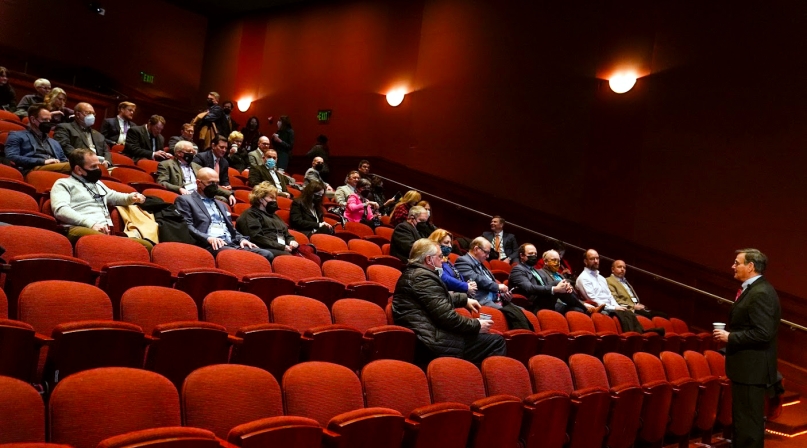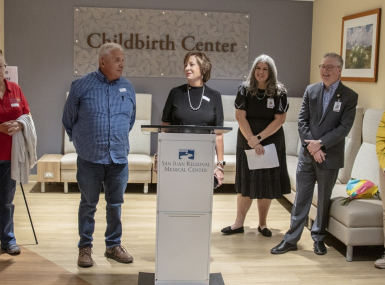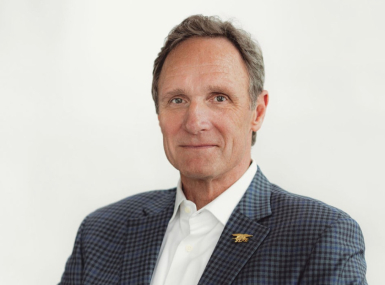County officials learn George Washington’s leadership lessons

Key Takeaways
Progress isn’t linear and Kathy Ackerman knew that, but she needed to hear it from a different perspective. Maybe a historical perspective.
Ackerman, the Idaho County, Idaho clerk and immediate past president of the Idaho Association of Counties, was in the audience Jan. 13 at George Washington’s Mount Vernon in Fairfax County, Va., during the meeting of the National Council of County Association Executives (NCCAE) Presidents and Executive Directors.
There, Rear Adm. Peter Cressy, director of Executive Leadership Programs at Mount Vernon’s Leadership Institute, spun the concept in a way that took root in Ackerman’s mind.
“Sometimes, retreating has its place,” she said. “Time and space can have great strategic advantage. I’ve always thought of retreating as admitting defeat.”
Washington’s retreat following a series of Revolutionary War defeats in New York, with the benefit of hindsight, lends a context that is often missing in the moment when leaders face resistance, opposition or a challenge. But Ackerman interpreted that lesson favorably.
“Leaders sometimes get into a position where they have something they want to accomplish, and they get stuck pushing forward with that and maybe not even listening to valid concerns or thoughts for feedback that people can present to fine-tune the effort,” she said.
She considers herself a “leadership geek,” who reads a lot on the topic, but often finds a lot of books rehashing the same lessons. Cressy’s notes on retreat went against the grain.
“Maybe taking a deep breath and backing up a little bit doesn’t have to be taken personally,” Ackerman said.
Cressy’s lecture drew parallels among the crises faced by Washington, Presidents Abraham Lincoln and Franklin Roosevelt and British Prime Minister Winston Churchill during their tenures. Cressy tied those impasses to the contemporary challenges county leaders are facing. He pointed out that the current COVID-19 crisis has demonstrated that government can’t always do everything and that the crisis requires buy-in from individuals and contributions from the private sector.
“Everything you guys represent in terms of executing policy and getting things done is right up Washington’s alley,” Cressy said.
“There’s so much [about Cressy’s lecture] that resonates in our current political atmosphere,” said Jerimiah Rieman, executive director of the Wyoming County Commissioners Association, who tries to fit 15 minutes of reading on leadership into each day.
“It was a reminder of how fragile our democracy can be in particular when it comes to the transition of power and how deeply enduring our republic can be,” he noted. “We saw that in his presidency, we saw that in the Civil War and the world wars.”
Rieman said the importance of projecting calm amid chaos is paramount to maintaining county officials’ position of authority, letting citizens know that their leaders are focused on the issues that matter.
“Keeping our national interest above personal interest,” he said.
Cressy stressed that early efforts to control anxiety and fear, coupled with frank but positive communication was a hallmark of all four leaders’ styles. So, too was forging collaboration and teamwork through personal credibility.
“It’s got to be thought of as a new component of leadership,” Reiman said. “Advisors make the difference, you need important dialogs, tough conversations.”
Cressy hammered home that controlling any misinformation is necessary, fundamental work to maintain credibility, but throughout, a leader’s tone is also important, as is a visible effort at taking responsibility and leadership roles.
“Over-communicating is often required,” Cressy said.
Palm Beach County, Fla. Commissioner Melissa McKinlay saw Washington’s position both as a reluctant government servant and a consensus-builder and could relate that to her own county experience.
“It’s not always making it about political affiliation, it’s about hammering out a compromise,” she said, alluding to an example she experienced — leading an effort to secure more COVID-19 vaccines for the seasonal farm worker population in her district.
“There was hesitancy to elevate them to being essential workers, but they were living in close-quarter, dormitory-style housing,” she said. “Sooner or later, they’d leave to go all over the country, and I didn’t want them to bring the virus wherever they went.”
She pursued assistance from four of the five biggest agriculture-producing counties, all in California, and they made their case to the federal government, which then worked with the state to get a mobile vaccination clinic to the seasonal workers.
McKinlay also looked at Washington’s final days in office with an eye toward her own term limits, which will mean the end of her time as a Palm Beach County commissioner at the end of 2022.
“I’m hoping my exit can be as graceful as his was,” she said. “You realize there are ways to serve the public besides holding elective office.”
Attachments
Related News

Now I know I can adapt my communication style
San Juan County, N.M. Commissioner Terri Fortner spent her career working with people one-on-one, but she overcame hangups about online communication when the pandemic forced her onto video calls when she first took office.

County service meets a veteran’s need for purpose in Spotsylvania County, Virginia
After Drew Mullins transitioned from a high-performance lifestyle in the military, he found the environment and purpose he sought when he took office in his county.
Now I know that solid waste is complicated
Custer County, Idaho Commissioner Will Naillon says solid waste removal is "one of the things that people often take for granted until it’s their job to make sure it happens... that’s the story of being a county commissioner."
